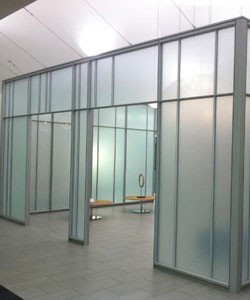 If you’re looking into boosting the energy-efficiency of your home, you’ve probably been left wondering how window film and window tint are different. Much ado is made about how windows can end up being enormous energy sinks, particularly if they’re old and poorly insulated. However, plenty of options exist for fixing them. If you’re looking for ways to get the most out of your windows, should you be pricing out window film or window tint?
If you’re looking into boosting the energy-efficiency of your home, you’ve probably been left wondering how window film and window tint are different. Much ado is made about how windows can end up being enormous energy sinks, particularly if they’re old and poorly insulated. However, plenty of options exist for fixing them. If you’re looking for ways to get the most out of your windows, should you be pricing out window film or window tint?
When to Use Window Tint
The short answer is that unless you own a commercial property, you most likely don’t want window tint. The easiest way to describe how window film and window tint are different lies in looking at window tinting like non-polarized sunglasses. They might present an attractive visual appearance and cut down on sun glare, but they won’t provide real UV protection and won’t look right in a variety of settings. Tinted windows can make an office building look sleek and modern and protect workers from prying eyes, but won’t do much for energy efficiency.
When to Use Window Film
Another way of explaining how window film and window tint are different is to look at the ways window film is designed to work. While window film may occasionally have a privacy tint and even appear to give windows a slightly mirrored finish from the outside, their primary function is to reduce heat transfer and keep harmful UV out. Window film can lower heating and cooling bills by as much as 60%. Homeowners can actually get a tax credit for installing them as an improvement to their home’s energy efficiency. Most window films also help block harmful UV rays, even if they aren’t tinted. This is not only important for protecting things like interior paint and upholstery from fading, but for protecting you and your family from potentially dangerous UV exposure, according to the International Window Film Association. Some films are also made to help windows withstand damage, by keeping shattered glass in place in the event of an earthquake or severe storm.
Window Tint for Residential Properties
None of this is to say that window tint should never be used on a home. While most of the question of how window film and window tint are different is answered with energy efficiency statistics and UV protection factors, those aren’t the only considerations. Some homeowners elect to use window tint on windows that face other people’s homes or the street in order to give their interiors a little more privacy. This is especially helpful for very large windows, bathrooms, or windows in rooms that face a lot of passers by. Some window films are slightly tinted, but that may not be enough. In these cases, actual window tinting can help provide a greater measure of privacy and security to a home.
Many homeowners wonder which option is the right choice for their home, and the distinction between window tint and film can become very muddied at times. When energy efficiency, UV protection, storm proofing, and security are taken into account, it’s easier to determine how window film and window tint are different and come to the right decision.
Related Resource: Egress Windows


